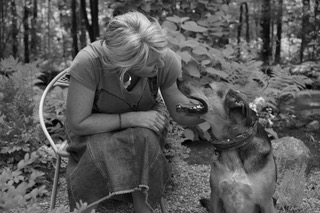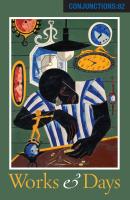Contributor History
- Five Poems, Online 10-04-2011
- As Mica Means Crumb, and Galaxy, Milk, Conjunctions:72
- Rigmarole, Online 09-23-2020
Biography

Sarah Gridley is the author of four books of poetry: Weather Eye Open (University of California Press, 2005), Green is the Orator (UCPress, 2010), Loom (Omnidawn Publishing, 2013, awarded the 2011 Open Book Prize by Carl Phillips), and Insofar (New Issues Press, 2020, awarded the 2019 Green Rose Prize by Forrest Gander). Other honors include the 2018 Cecil Hemley Memorial Award and the 2019 Writer Magazine/Emily Dickinson Award from the Poetry Society of America. She is in the first year of an MA program in Theological and Religious Studies at John Carroll University.
